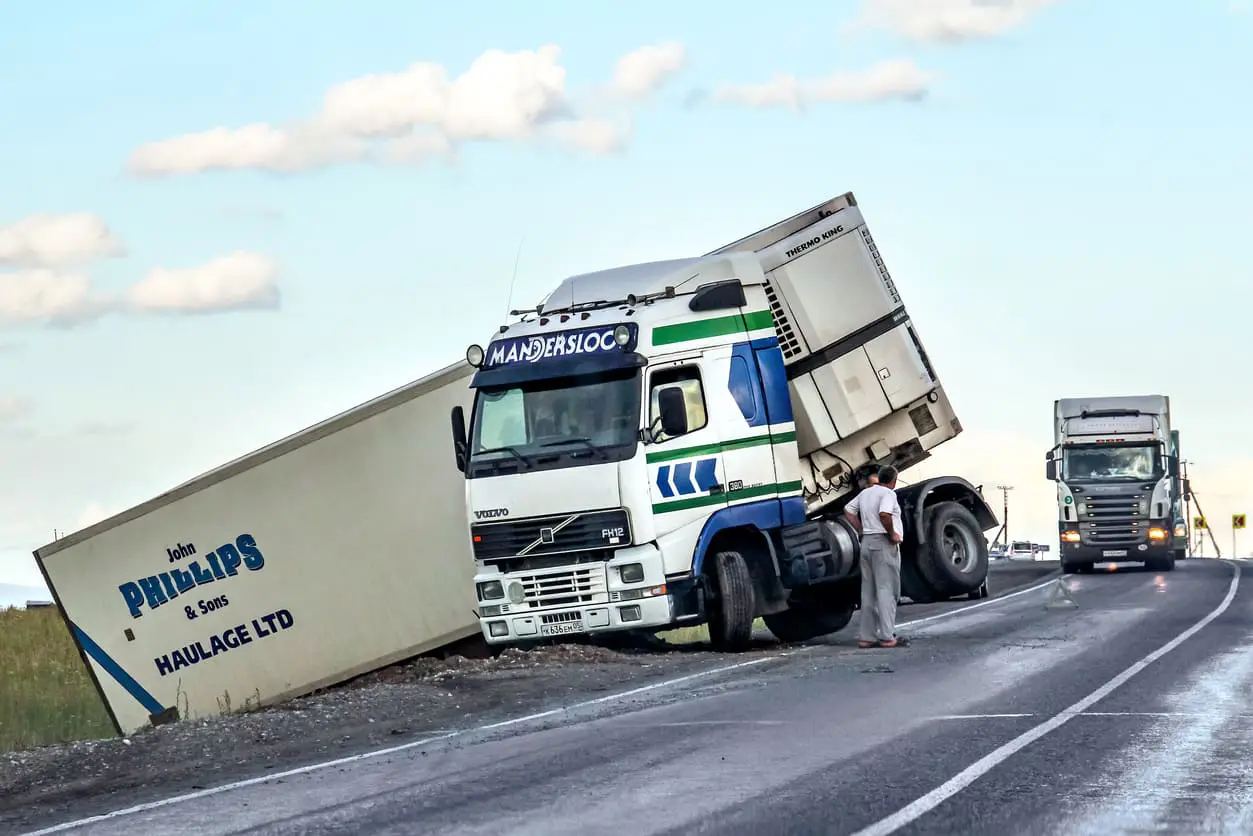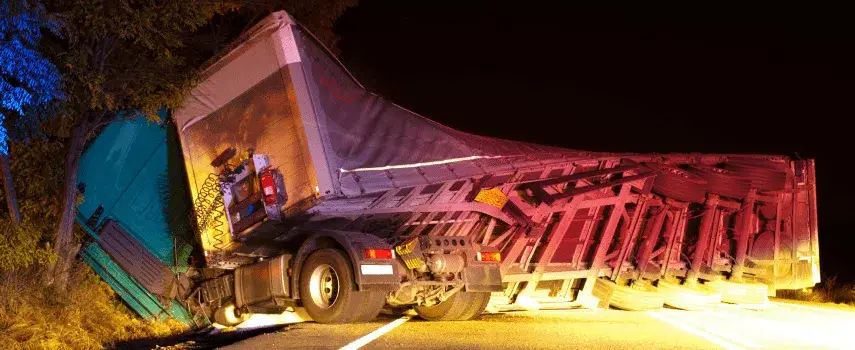A jackknife truck accident occurs when the trailer wings around, forming an angle with the vehicle’s cab. These crashes can be extremely dangerous for those involved due to the truck’s size and weight. The severity of such an accident often depends on the road conditions, the driver’s level of experience and the truck’s design. Knowing what can cause a jackknife accident is essential to prevent them from occurring.
Reasons for a Jackknife Truck Accident
The reasons a jackknife accident happens are not random. There are a number of different issues that can lead to a jackknife accident. Some prominent examples are:
- Jackknife accidents are frequently due to wet roads that cause the truck to lose traction and skid out of control.
- A heavy load can shift unexpectedly, throwing the entire vehicle off balance and leading to a jackknife.
- Tire misalignment due to wear and tear or improper maintenance can cause instability and make it easier to jackknife.
- Speeding, tailgating, sharp turns or sudden stops can all contribute to jackknife accidents.
- Brake wear and tear can cause a sudden loss of control, leading to a jackknife.
- Faulty or defective parts in the system can lead to instability and the potential for an accident.
- Fatigued drivers have slower reaction times and impaired judgment, both of which can cause a jackknife accident.
- Alcohol and drugs can impair judgment, reaction time and coordination, which can cause a jackknife accident.
A trucker or the trucking company can be liable if they fail to monitor the big rig or repair problems before an accident happens.
How Can a Jackknife Impact Other Vehicles?

Jackknifing accidents involving big rigs can put other vehicles on the roadway at risk. If a semi-truck jackknifes, it can take up multiple lanes of traffic, blocking the way for other vehicles. Depending on the speed and trajectory of the truck, other vehicles might have little time to slow or change direction.
In extreme cases, other cars could become trapped underneath the truck’s trailer, leading to devastating and potentially fatal consequences. A collision involving a big rig increases the risk for other vehicles in the case of a jackknife accident. When these large trucks lose control, they can cause severe damage to smaller vehicles due to their momentum. The truck can push a vehicle off the road or throw it into other lanes of traffic when it jackknifes.
Recovering Compensation in an Accident
If a jackknife accident injures you, you can file a claim for financial compensation for your losses. The amount of compensation depends on the specific facts and circumstances of your case. Victims may be able to pursue compensation from sources such as the trucking company, the truck driver and other responsible parties.
The first step in recovering compensation is to establish that the accident was caused by another party’s negligence. Negligent actions include poor vehicle maintenance, speeding and not adhering to safety regulations. After gathering pertinent evidence, you may be able to seek compensation for medical costs, lost wages and pain and suffering. Proof of negligence is key to filing a lawsuit for injuries due to a jackknife accident.
Some ways to prove negligence is by using accident reconstruction techniques and obtaining surveillance camera footage. Other strategies include interviewing witnesses and review the police report for mistakes or inaccuracies. To maximize your chances of recovering full compensation, it is essential to consult a qualified truck accident attorney. An experienced attorney can help you identify all applicable sources of recovery. This will help you and fight to ensure that your interests are represented in any settlement or court proceedings.




